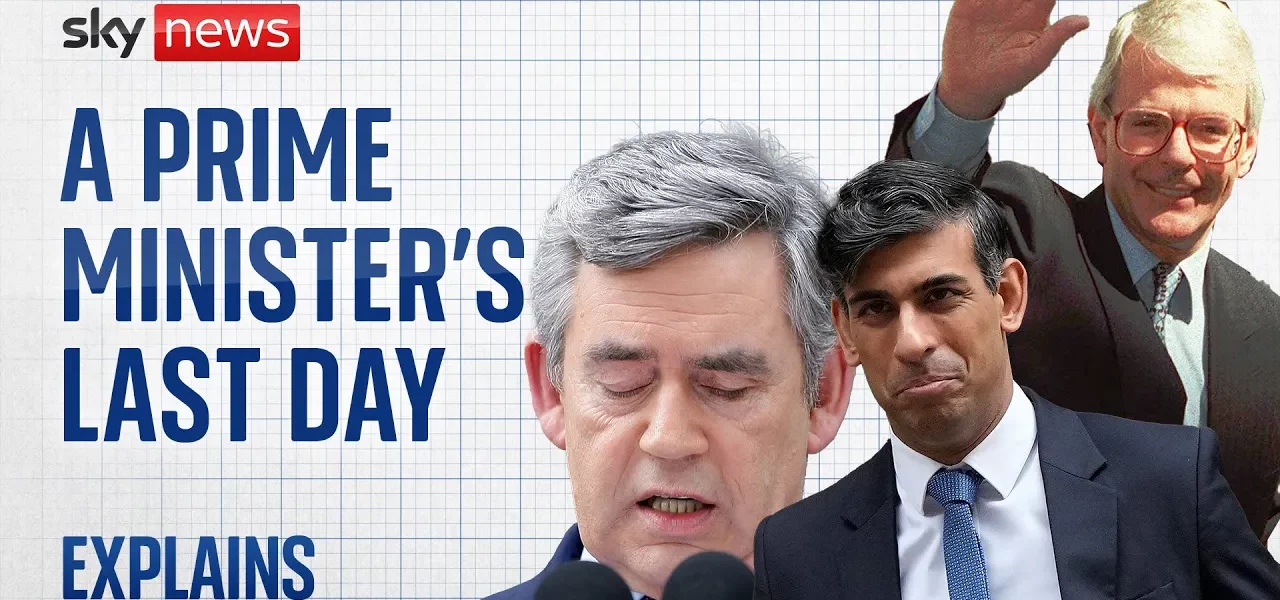The Brutal Changeover of Power in Britain

The transition of power in Britain is a complex and often dramatic affair, marked by security protocols, emotional farewells, and the stark reality of political life. This article delves into the multifaceted process faced by outgoing and incoming prime ministers, highlighting key moments and traditions that define this critical period in British politics.
Introduction
The changeover of power in Britain is not just a simple handover of responsibilities; it is a meticulously orchestrated event filled with significance and emotional weight. The image of a removal van outside Downing Street symbolizes the abrupt transition from leadership to private life, often happening in a matter of hours. This process involves careful planning and consideration of security measures, as well as the personal experiences of the individuals involved. Understanding the nuances of this political ceremony reveals much about the nature of leadership and the implications of political change in the United Kingdom.
Preparation for the Changeover
One of the first steps in the transition of power is the logistical preparation that must take place long before election results are announced. This preparation encompasses various key elements:
- Removal Van Arrangements: The need for a removal van at Downing Street is a clear indication of the rapid nature of the transition. This is arranged in advance due to the need for swift action following election results.
- Security Considerations: Security implications are paramount; the presence of unknown individuals moving in and out of such a politically significant location demands careful planning and management.
- Personal Packing: Even the most confident prime ministers maintain a level of caution, often packing boxes ahead of time, reflecting a sense of uncertainty about the election outcome.
The Role of the Outgoing Prime Minister
Upon realizing they will be leaving office, the outgoing prime minister must navigate a series of essential tasks:
Constituency Count and Travel
After the election, the outgoing prime minister must attend the count in their constituency. Following this, they typically return to London to:
- Thank their staff and colleagues
- Reflect on their time in office
- Prepare for the formalities that lie ahead
Immediate Security Briefings
Upon entering Downing Street, the incoming prime minister is met with a barrage of security briefings. These briefings include crucial discussions about:
- Current threats to national security
- Procedures for handling sensitive information
- Updates on military readiness
Critical Tasks: Letters of Last Resort
One of the most somber responsibilities of an incoming prime minister involves the preparation of the Letters of Last Resort. These letters, which are sealed and sent to the commanders of Britain’s nuclear submarines, dictate the course of action in the event of a catastrophic attack on the UK. The process includes:
- Writing the letters, which are typically sealed to maintain confidentiality.
- Ensuring the immediate replacement of the outgoing prime minister’s letters, which remain with the submarines until they return to port.
- Recognizing the gravity of the responsibility handed over during this transition.
The Emotional Farewell
The emotional weight of leaving office cannot be understated. Outgoing prime ministers often experience a range of feelings as they prepare to leave their roles. This farewell can include:
Goodbyes and Well Wishes
As outgoing leaders bid farewell to their staff, they may share personal sentiments. For instance, John Major famously left a bottle of champagne for Tony Blair, accompanied by a note wishing him well. Such gestures highlight the camaraderie that can exist despite political rivalry.
The Transition to Private Life
The final moments in office can feel surreal. As prime ministers exit Downing Street, they often transition from wielding immense power to becoming private citizens. This abrupt change can be likened to a fairytale ending, akin to Cinderella when the carriage turns back into a pumpkin. The experience can be jarring, as illustrated by Edward Heath’s story of leaving Buckingham Palace, where he was informed by his bodyguard that his protection was no longer required.
Changes Post-Premiership
Once a prime minister leaves office, several immediate changes take place that signify their new status:
- Change of Transport: Former prime ministers are provided with chauffeur-driven cars, but these differ from the prime ministerial vehicles they once used.
- Loss of Security Detail: The cessation of official government protection can be a stark realization for many former leaders.
- Public Perception: The shift from a figure of authority to a private citizen often alters how they are treated by the public and the media.
Conclusion
The transition of power in Britain is a complex and often emotionally charged process that underscores the weight of political leadership. From logistical preparations to heartfelt farewells, each step in this changeover is imbued with significance. Understanding these dynamics offers insight into the broader implications of political power and the experiences of those who wield it. For those interested in the intricacies of British politics, further exploration of related topics such as the role of the monarchy in political transitions and the history of prime ministerial changes can provide a deeper understanding. Explore more about British politics here.
“`




